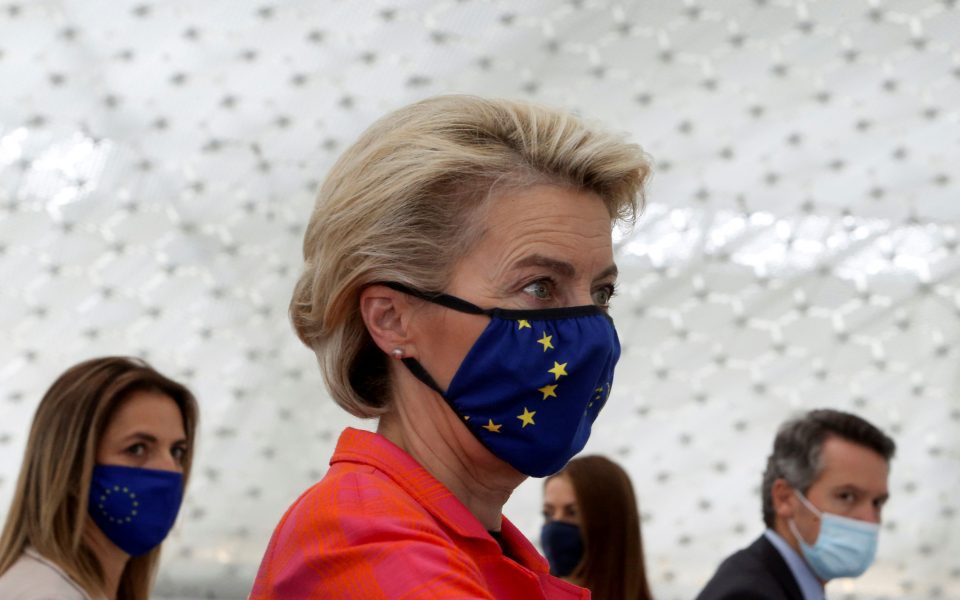EU executive approves Cyprus’ 1.2 bln euro Covid recovery plan

The European Union’s executive approved on Thursday Cyprus’s plan to spend 1.2 billion euros ($1.41 billion) worth of special funds from the EU, aimed at restarting economic growth mauled by the Covid-19 pandemic.
The aid, which Cyprus won’t have to pay back, is part of the EU’s unprecedented economic stimulus totalling 800 billion euros to be distributed among the 27 member states.
“It is ambitious, it is farsighted and will spur the growth that is necessary for a better future,” European Commission President Ursula von der Leyen said, speaking in the Cypriot capital Nicosia.
Cyprus plans to use 41% of the total allocated funds to support climate objectives, including green taxation, the liberalisation of the electricity market and facilitating energy renovations in buildings, the EU Commission said.
Energy efficiency is low on an island where hot summers topping 40 degrees Celsius are commonplace. Four people were killed and dozens of homes destroyed in a massive wildfire which razed more than 40 square kilometres of forest and farmland on July 3-4, the worst on record.
Von der Leyen, who arrived in Cyprus on Wednesday, headed straight to the area affected and spoke with locals and firefighters.
Cyprus has allocated some 18 million of the funds for fire fighting. “That is forward-looking, and unfortunately the actual events were the proof how important it is,” Von der Leyen said.
The plan also includes measures to promote digitalisation of public services, to support early childhood education and to reduce risks in the banking sector related to legacy non-performing loans.
Cypriot authorities expect implementation of the plan will increase national output by 3.2% in the immediate 2022-2023 period, and by 7.1% in the longer term until 2026, creating 11,000 new jobs.
[Reuters]





